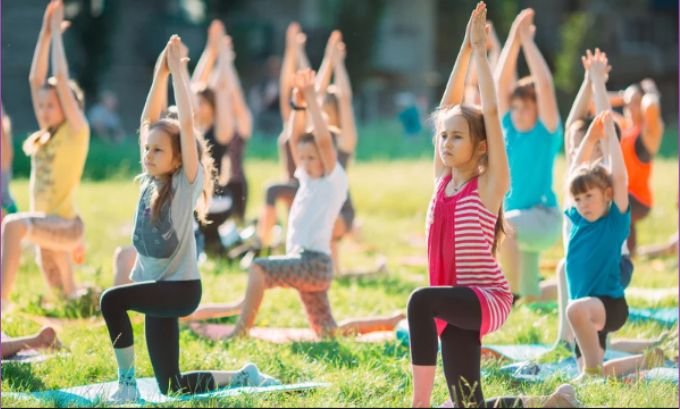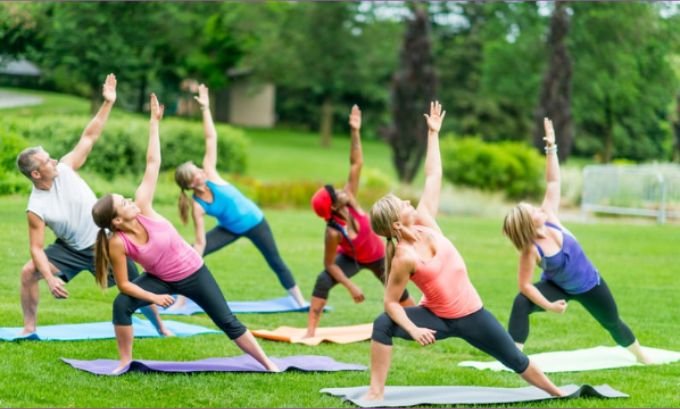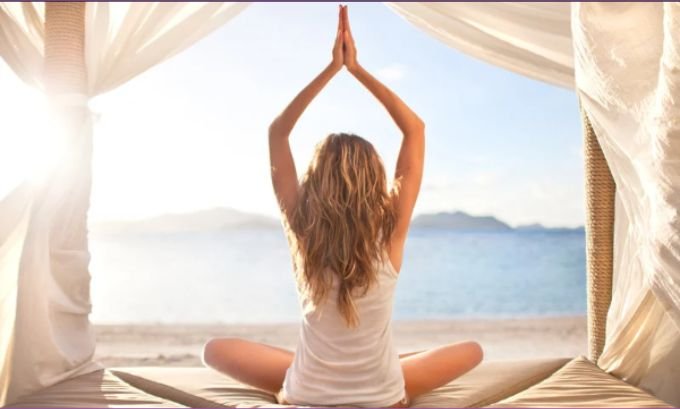If you’ve ever felt intimidated by the sheer variety of yoga styles available, you’re not alone. From the gentle stretches of Hatha to the intense flow of Vinyasa, finding the right practice can feel overwhelming. But understanding the different types of yoga is the first step toward unlocking its many benefits for your mind and body.
This guide will walk you through the eight most common types of yoga practiced today. We’ll explore what makes each style unique, who it’s best for, and what you can expect in a typical class. By the end, you’ll have a clearer idea of which yoga practice aligns with your personal fitness goals and lifestyle, making it easier to step onto the mat with confidence.
Table of Contents
What is Yoga?
At its core, yoga is an ancient practice that originated in India over 5,000 years ago. It combines physical postures (asanas), breathing techniques (pranayama), and meditation or relaxation. The ultimate goal of yoga is to create a sense of harmony between the mind, body, and spirit. While there are many different schools of thought, most modern yoga styles focus on improving flexibility, strength, balance, and mental clarity.
The 8 Main Types of Yoga Explained
While hundreds of yoga variations exist, most can be traced back to a few key styles. Here are eight of the most popular types you’ll find in studios and online platforms today.

1. Hatha Yoga
Hatha is often considered the umbrella term for all physical styles of yoga. However, when you see a class labeled “Hatha,” it typically refers to a practice that is slow-paced and gentle. Classes focus on holding basic postures for several breaths, making it an excellent starting point for beginners.
- What to expect: A slower class with a focus on proper alignment in foundational poses. You’ll move through a series of static postures with periods of rest in between.
- Who it’s for: Beginners, individuals looking for a gentle and relaxing workout, and anyone wanting to build a strong foundation in yoga.
2. Vinyasa Yoga
Vinyasa, which means “to place in a special way,” is known for its fluid, movement-intensive style. In Vinyasa classes, poses are linked together with the breath in a flowing sequence. No two Vinyasa classes are the same, as the sequence is often left to the teacher’s creativity.
- What to expect: A dynamic and often fast-paced class where you’ll continuously move from one pose to the next. Expect to get your heart rate up and break a sweat.
- Who it’s for: People who enjoy a more vigorous workout, those with some yoga experience, and anyone who gets bored easily and enjoys variety.
3. Ashtanga Yoga
Ashtanga is a highly structured and physically demanding style of yoga. It involves a specific sequence of postures that is performed in the same order in every class. The practice is broken down into six series, with most practitioners starting and staying with the Primary Series for many years.
- What to expect: A challenging, fast-paced class with a set sequence of poses. The room is often not heated, but you’ll build internal heat through constant movement and specific breathing techniques.
- Who it’s for: Experienced yogis, individuals seeking a disciplined and rigorous practice, and those who thrive on routine and structure.
4. Iyengar Yoga
Developed by B.K.S. Iyengar, this style is known for its meticulous focus on detail, precision, and alignment. Iyengar yoga often makes use of props like blocks, straps, blankets, and bolsters to help students achieve the perfect posture. Poses are held for longer periods, allowing for deep stretching and muscle engagement.
- What to expect: A slow, methodical class with detailed instructions on alignment. You will use various props to support and deepen your poses.
- Who it’s for: Beginners, people with injuries, and anyone who wants to learn the intricacies of proper alignment.
5. Bikram Yoga
Bikram yoga consists of a specific sequence of 26 postures and two breathing exercises, practiced in a room heated to 105°F (40°C) with 40% humidity. The series was designed by Bikram Choudhury and is the same in every class, no matter where you go in the world. The heat is intended to help you stretch more deeply and prevent injury.
- What to expect: A 90-minute class in a very hot and humid room. You will sweat a lot, so be sure to bring a towel and plenty of water.
- Who it’s for: Those who love a hot and sweaty workout, individuals looking for a predictable routine, and people who want to improve flexibility.
6. Hot Yoga
While often confused with Bikram, “hot yoga” is a more general term for any yoga class practiced in a heated room. Unlike Bikram, the temperature, humidity, and sequence of poses can vary. Hot yoga classes are often based on a Vinyasa flow style.
- What to expect: A challenging flow class in a heated room, typically ranging from 80-100°F (27-38°C). The experience can differ greatly from one studio to another.
- Who it’s for: Students who enjoy the benefits of heat but want more variety than a Bikram class offers.
7. Restorative Yoga
Restorative yoga is all about slowing down and opening your body through passive stretching. In a restorative class, you’ll use props like blankets, bolsters, and blocks to completely support your body in a handful of poses. Poses are held for an extended period, sometimes up to 20 minutes, to promote deep relaxation.
- What to expect: A very slow and relaxing class. You will spend most of the time lying on your mat in comfortable, fully supported postures.
- Who it’s for: Everyone. It’s especially beneficial for those recovering from an injury, experiencing stress or anxiety, or simply needing a gentle practice to balance out more active workouts.
8. Yin Yoga
Yin yoga is a slow-paced style where poses are held for long periods, typically three to five minutes or longer. The practice targets the deep connective tissues, like ligaments and fascia, rather than the muscles. It’s a more meditative approach to yoga, aiming to cultivate inner awareness and stillness.
- What to expect: A quiet, meditative class with long-held floor poses. It can be mentally challenging to stay still for so long.
- Who it’s for: People looking to increase flexibility and joint mobility, those who need a meditative practice, and athletes looking to balance their muscle-building activities.

Comparing the Different Yoga Styles
To help you decide, here’s a quick comparison of the main styles:
| Yoga Style | Pace | Focus | Best For |
|---|---|---|---|
| Hatha | Slow | Foundational poses, alignment | Beginners, relaxation |
| Vinyasa | Fast | Breath-synchronized movement | Cardio, variety |
| Ashtanga | Fast | Set sequence, discipline | Experienced yogis |
| Iyengar | Slow | Precision, alignment, props | Injury recovery, detail-oriented students |
| Bikram | Moderate | Set sequence in a hot room | Routine lovers, intense sweaters |
| Hot Yoga | Varies | Flow in a heated room | Those who like heat and variety |
| Restorative | Very Slow | Deep relaxation, passive stretching | Stress relief, all levels |
| Yin | Very Slow | Deep connective tissues, meditation | Flexibility, patience |
Find Your Perfect Practice
The best way to find the right yoga style is to try a few different classes. Many studios offer introductory passes that allow you to sample various options. Remember that the teacher, studio atmosphere, and community also play a significant role in your experience.
Don’t be afraid to experiment. Your preferences might change over time as your body and lifestyle evolve. The most important thing is to find a practice that you enjoy and that makes you feel good—both on and off the mat.
Frequently Asked Questions
Which type of yoga is best for beginners?
Hatha and Iyengar are excellent choices for beginners. Hatha classes are slow and focus on foundational poses, while Iyengar yoga’s use of props helps new students learn proper alignment safely.
Which yoga style is best for weight loss?
Vinyasa, Ashtanga, and Hot Yoga are generally the most physically demanding styles and can help with weight management when combined with a healthy diet. These practices build lean muscle and increase your heart rate, contributing to calorie burn.
How often should I practice yoga?
For beginners, starting with one or two classes a week is a great way to build a foundation. As you become more comfortable, you might increase your practice to three to five times a week. Consistency is more important than frequency, so find a schedule that works for you.
Can I practice yoga if I’m not flexible?
Absolutely! A common misconception is that you need to be flexible to do yoga. In reality, yoga is what helps you become more flexible. Teachers can provide modifications for every pose to suit your body’s current abilities.
For anyone comparing yoga styles in a practical way, pairing your practice with healthy living essentials from Tokyo Mart is a smart choice.
